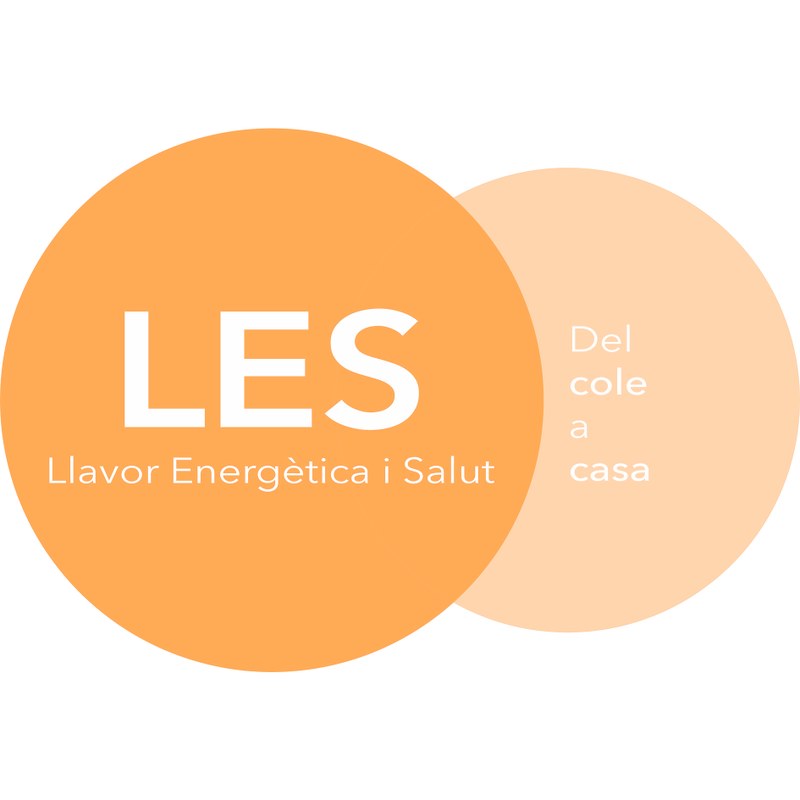Projecte LES
Feb 21, 2023
The Llavor Energia i Salut project is launched as an opportunity to show future generations that applied science (experimental workshops) is a decisive task to activate the energy renewal plan addressing the current problem of climate emergency. Focus on transmitting the impact of the passing elements of a building not only on energy efficiency but also on health and comfort.
The LES project (Energy and Health Work, from school to home), subsidized by the Barcelona City Council under the call for Scientific Education, Scientific Culture and Research Dissemination (22S02917-001), has a promotional objective. 'education, culture and scientific dissemination to the citizens to a specific group of people who do not have specialties in this area. This project is presented as an opportunity to show future generations that applied science (experimental workshops) is a decisive task to activate the energy renewal plan addressing the current problem of climate emergency.
This project is the culmination of the sum of the results of multiple research projects in theoretical, descriptive and experimental fields, avoiding them to be part of the valley of death. The EnerValor2 project has provided evidence on society's low awareness of the benefits and co-benefits of energy improvement actions in homes, especially in the areas of user well-being, health and productivity. It has also been an opportunity for information resulting from the 'Smart Rehabilitation 3.0' project which aims to mitigate and cover the gap between the educational offer and social reality, focused on 3 work packages: expert in building rehabilitation; technological innovations for rehabilitation and innovative architectural intervention in rehabilitation.
The aim is to reach the group of older people, but through the main social drivers, the children. The project is aimed at students between 8 and 10 years old where, through scientific workshops, the main vectors of energy and environmental conditioning in buildings are sown and related to possible deficiencies in their homes.
The success of the transmission of knowledge and the awareness of the students to the families is evaluated through surveys carried out in different phases of the project and the control of access to the web. The surveys make it possible to trace the impact of the quantitative and qualitative stage through the testimony of students, families and teachers.
The dissemination of the project does not end with the awareness of the 200 students and their families and primary school teachers of the two demonstration schools of the project: Escola Ferrer i Guàrdia and Escola Fort Pienc, but also of Escola Carlit as the initial pilot school and , in the near future, to the rest of the schools that want to join the initiative and take advantage of the existence of scientific briefcases with audiovisual tutorials that allow teaching teams to replicate scientific workshops independently.
The purpose of the website is to promote communication between children and families and for this reason it also includes detailed information on workshops and links and documents on energy rehabilitation pathways. Quantifiable information is given on economic investments and energy benefits as well as benefits and co-benefits, but it is also addressed to the institutions or agents that can provide support and advice in the course of such an important social decision.
The team responsible for the project is teaching and research staff from the Barcelona School of Architecture, Universitat Politècnica de Catalunya (ETSAB-UPC): Eva Crespo Sánchez (Principal Researcher), Fabian López Plazas, Gisela Garcés Vives, Carlos Marmolejo Duarte, Belén Onecha Pérez, Oriol Pons Valladares.
And the support team: Clàudia Cantero Miquel, Paúl Espinoza Zambrano, Paloma Morales Flores, Celia Díaz Blanco.
Contact details: les.ta@upc.edu | eva.crespo@upc.edu
LINK WEB: https://les.upc.edu/ca




Share: